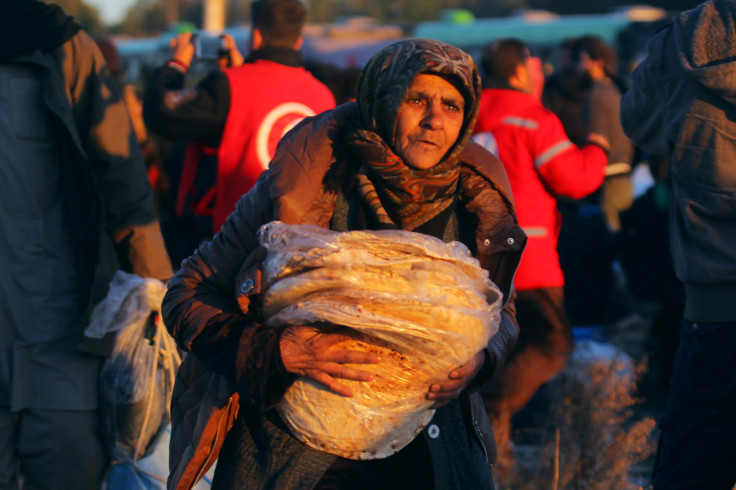Will US Go To War With Russia Over Aleppo? Kerry Calls For Safe Evacuation Process in Syria

As an evacuation effort in the war-torn Syrian city of Aleppo crumbled into a state of chaos and confusion Thursday, global audiences watching developments unfold online wondered what, if any, response America would have.
President Barack Obama’s administration has remained unusually silent despite pleas from the international community to deliver a strong, swift response to Russia’s continued devastation and aerial bombardments in the city’s eastern region. Instead, the White House hasn’t directly confronted Russian President Vladimir Putin over the humanitarian issue, with Obama repeatedly saying staying out of Syria is the United States' "smartest choice," adding the nation’s lack of a response helped save lives rather than cost them.
But after ambulances and Aleppo residents fleeing the city were targeted, reportedly by forces backed by the Assad regime, the administration was forced to deliver a message to Russia, Iran and the Syrian government. Secretary of State John Kerry denounced Russia’s involvement in the ongoing destruction of Aleppo, describing international airstrikes and destruction backed by Syrian President Bashar Assad "nothing short of a massacre."
Kerry stopped short of threatening U.S. military involvement should evacuations continue to go awry, however. "Provided we are able to stabilize the situation in Aleppo it is essential that we move forward at the earliest possible moment with a Syrian-led political process," Kerry said Thursday afternoon in a televised press conference.
Secretary @JohnKerry provides an update on the situation in #Syria https://t.co/eirlNB7ZID
— Department of State (@StateDept) December 15, 2016
The Obama administration has been careful to avoid confrontation with Russia over the humanitarian crisis in Syria though it remains unclear what President-elect Donald Trump might do as commander in chief with respect to the Middle East. Trump reportedly spoke with Putin after his election victory, discussing the ongoing Syrian crisis and the need for a joint-effort to eradicate the Islamic State and international terror groups from the region. Meanwhile, Assad described Trump as a “natural ally” in the fight against global terror. While the president-elect hasn’t specifically said whether he’d confront Russia and Syria militarily to promote peace and stability in the region, those hopes are diminished by comments he made along the campaign trail.
"ISIS is making a tremendous amount of money because they have certain oil camps, certain areas of oil that they took away," Trump said in Iowa last year. "They have some in Syria, some in Iraq. I would bomb the s--- out of 'em. I would just bomb those suckers. That's right. I'd blow up the pipes. ... I'd blow up every single inch. There would be nothing left. And you know what, you'll get Exxon to come in there and in two months — you ever see these guys, how good they are, the great oil companies? They’ll rebuild that sucker, brand new. It'll be beautiful."
Trump nominated Rex Tillerson, Exxon CEO and friend of Putin's, as secretary of state Tuesday.
Unimaginable destruction. Drone footage shows the evacuation of residents from their homes in besieged #Aleppo. pic.twitter.com/9Ar8KCfZLw
— Amarnath Amarasingam (@AmarAmarasingam) December 15, 2016
Some 150,000 residents remain trapped in Aleppo, awaiting refuge in the outskirts of the city where humanitarian aid envoys are waiting to deliver essential resources. Meanwhile, organizations on the ground describe ongoing issues in delivering aid across Syria’s borders with Turkey, which used to have several safe passageways. Now, activists say donations from around the world and demands for international governments to support diplomatic resolutions to the Syrian crisis are more crucial than ever.

© Copyright IBTimes 2025. All rights reserved.






















